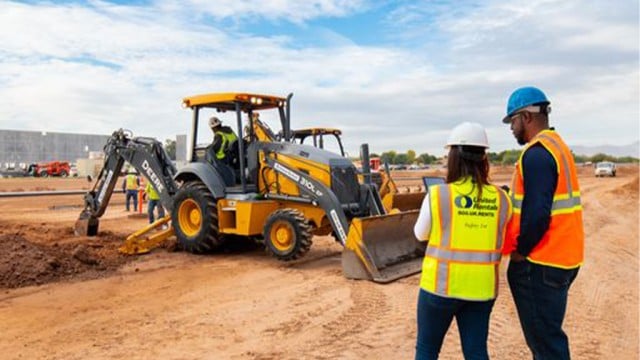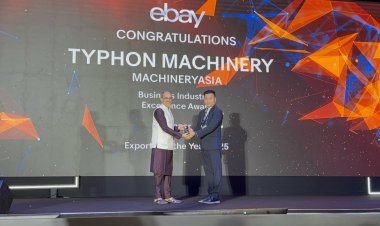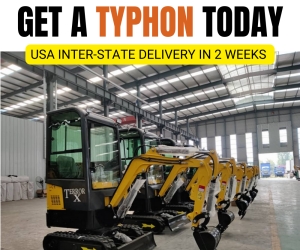JCB Rolls Out its 1,000th Rough-Terrain Telehandler for U.S. Army
The “light capacity rough terrain forklifts” are used for loading and unloading aircraft and shipping containers and are built...

JCB landed a $142 million contract with the U.S. Army in 2016 to produce 1,600 “light capacity rough terrain forklifts.”
The company now reports it has hit the 1,000 production mark in providing the military-style telehandlers to U.S. troops around the world. The 527-58Ms are used for loading and unloading aircraft and shipping containers. They are built at JCB’s North American headquarters in Savannah, Georgia, which is also home to JCB’s Government and Defense division.
The military telehandler is based on JCB’s civilian agricultural model but modified to meet the Army’s needs.
"The LCRTF demonstrates how a robust commercial machine can excel in supporting missions in the most demanding military environments," says Chris Giorgianni, vice president of government and defense at JCB. "If it’s tough enough for the U.S. Army, it’s tough enough for your jobsite or farm. This milestone is a testament to JCB’s engineering expertise and our ability to meet diverse customer needs."
JCB was awarded a 10-year contract in December 2016 to produce the LCRTF for the Army, with full-scale production beginning in late 2019. The military telehandler model is currently exclusive to the U.S. Army, the company says.
At the time, it was JCB’s second-largest contract with the U.S. military, following a $206 million order in 2005 for its 636 high-speed backhoes, also known as High Mobility Engineer Excavators (HMEE), also built in Savannah.
The 527-58M telehandler has a max lift capacity of 5,000 pounds and 19-foot lift height. Modifications for the military include cold-start capability for quick start in any climate and increased maneuverability in tight spaces. JCB says that less than 10% of the machine has been tailored to military needs, with the rest the same as its commercial telehandlers.

 machineryasia
machineryasia 







